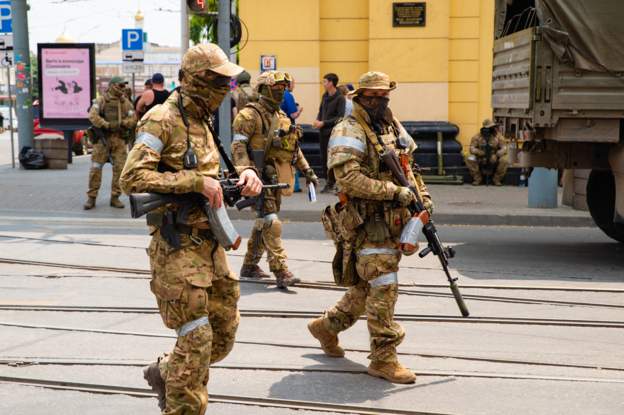Western intelligence knew that Prigozhin was preparing a "rebellion," but its speed still came as a surprise
Putin also knew about it, and the Russian elite now wonders why he allowed it to happen, considering inaction to be weakness

U.S. intelligence knew that the head of the Wagner PMC, Yevgeny Prigozhin, was preparing an armed coup and was quite sure of it on Wednesday when it reported this information to Congress.
Several Western media outlets (The Washington Post, The New York Times) reported, citing U.S. intelligence, that Prigozhin had been preparing an armed rebellion since mid-June, but its speed and scale were still unexpected to the West.
The main reason for Prigozhin to turn against the Russian authorities was probably the order of Russian Defense Minister Sergei Shoigu of June 10, according to which all "volunteer" units must sign a contract with the Russian Defense Ministry by July 1.
Prigozhin then stated that this order did not apply to his PMC Wagner.
Soon, the US intelligence services realized that Prigozhin was "starting something," and on Wednesday, June 21, their final assessment was shared with Congressional leaders: that the movement of PMC Wagner forces indicated preparations for an armed rebellion.
This intelligence information was not widely disseminated, unlike the situation before Russia's invasion of Ukraine.
First, CNN writes, the United States had no motive to help the Russian president withstand a powerful blow to his regime, and second, the Russian side could use any leak as evidence of an "American trail."
The main concern of the United States was the fate of Russia's nuclear arsenal if the country plunged into the chaos of civil war. The intelligence services had no specific details about Prigozhin's possible actions, such as the seizure of Rostov-on-Don or a march on Moscow.
Prigozhin's loud statements about the shell famine were partly a cover for building up arms stockpiles, CNN writes.
President Putin probably also had some information about the Wagner rebellion in advance, but he did not take any visible action, WP writes.
The reason for this was probably the lack of coordination and internal strife in the highest echelons of the Russian government, the newspaper writes, citing an assessment by the intelligence services.
"The Russian elite will now question why Putin allowed this to happen and did not react sooner, and question his leadership," WP notes.
Background. Mind analyzed the consequences of Prigozhin's "rebellion" for Russia and how it will affect the situation around Ukraine in the article "Mutiny is over: results and consequences of the Wagner PMC rebellion for Russia and Ukraine".
If you have read this article to the end, we hope that means it was useful for you.
We work to ensure that our journalistic and analytical work is of high quality, and we strive to perform it as competently as possible. This also requires financial independence. Support us for only UAH 196 per month.
Become a Mind subscriber for just USD 5 per month and support the development of independent business journalism!
You can unsubscribe at any time in your LIQPAY account or by sending us an email: [email protected]



